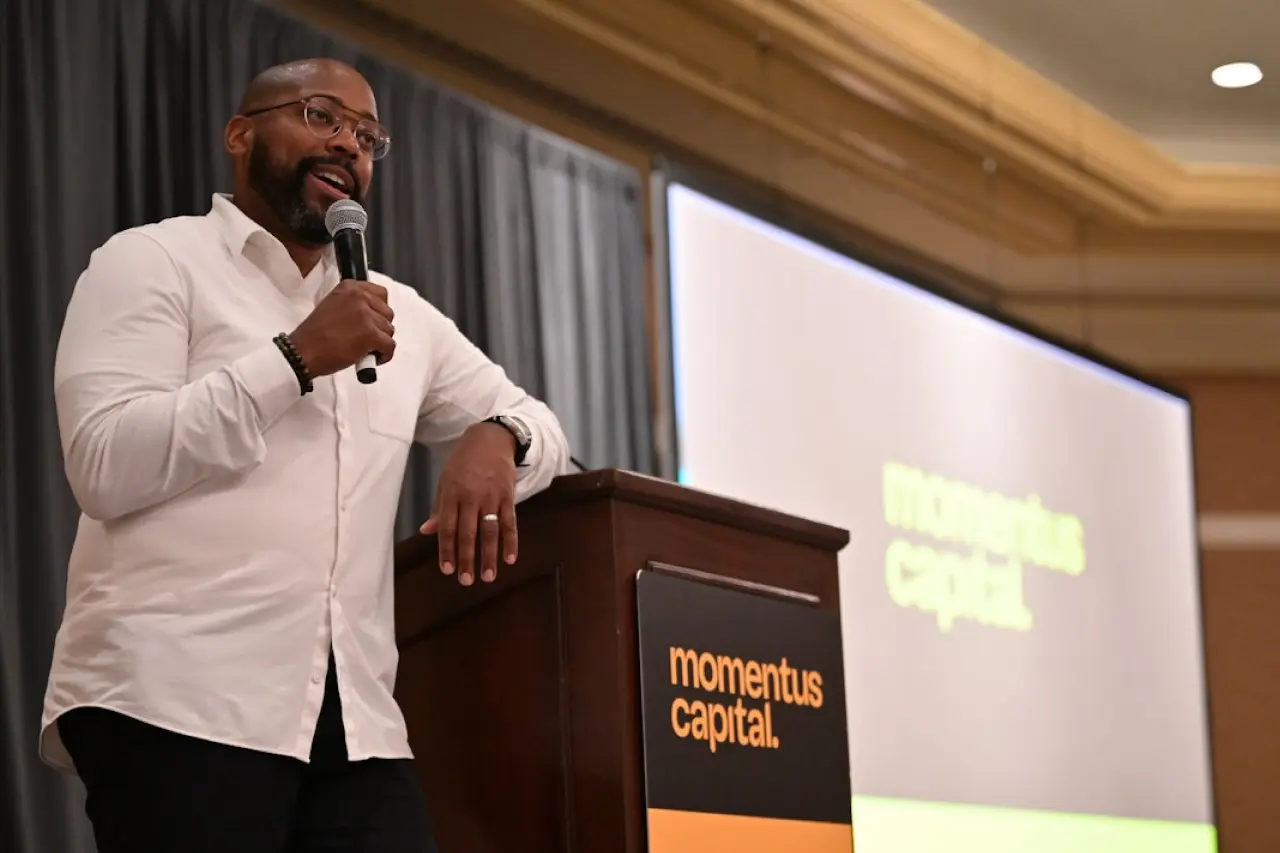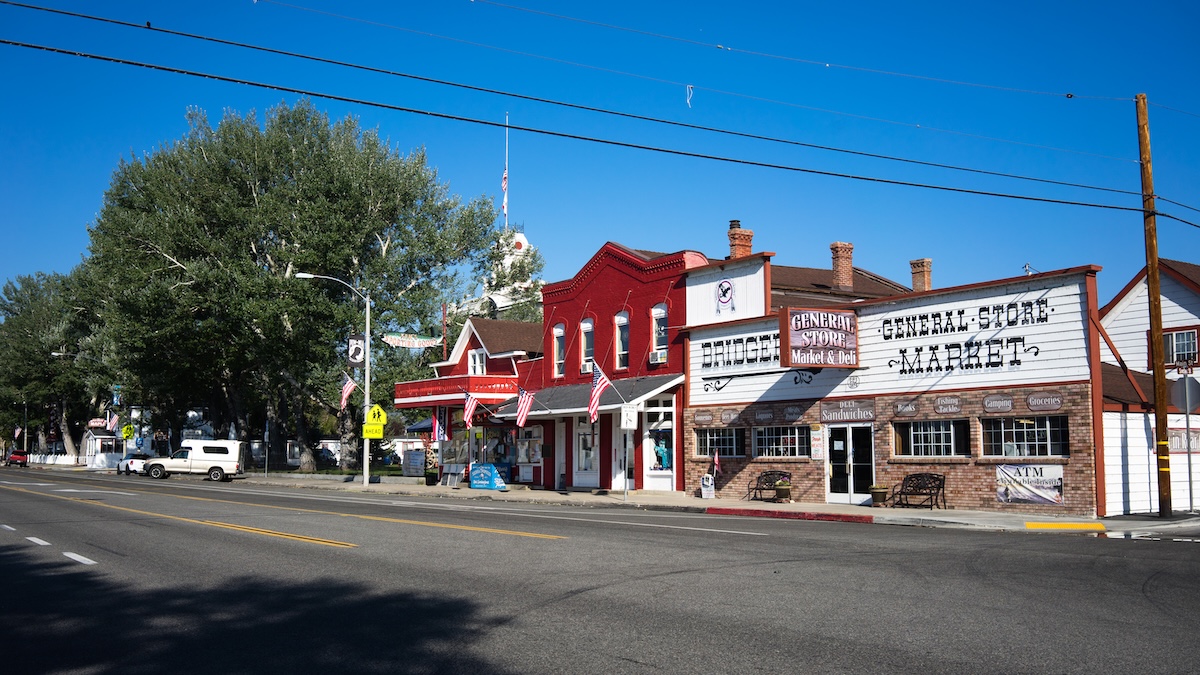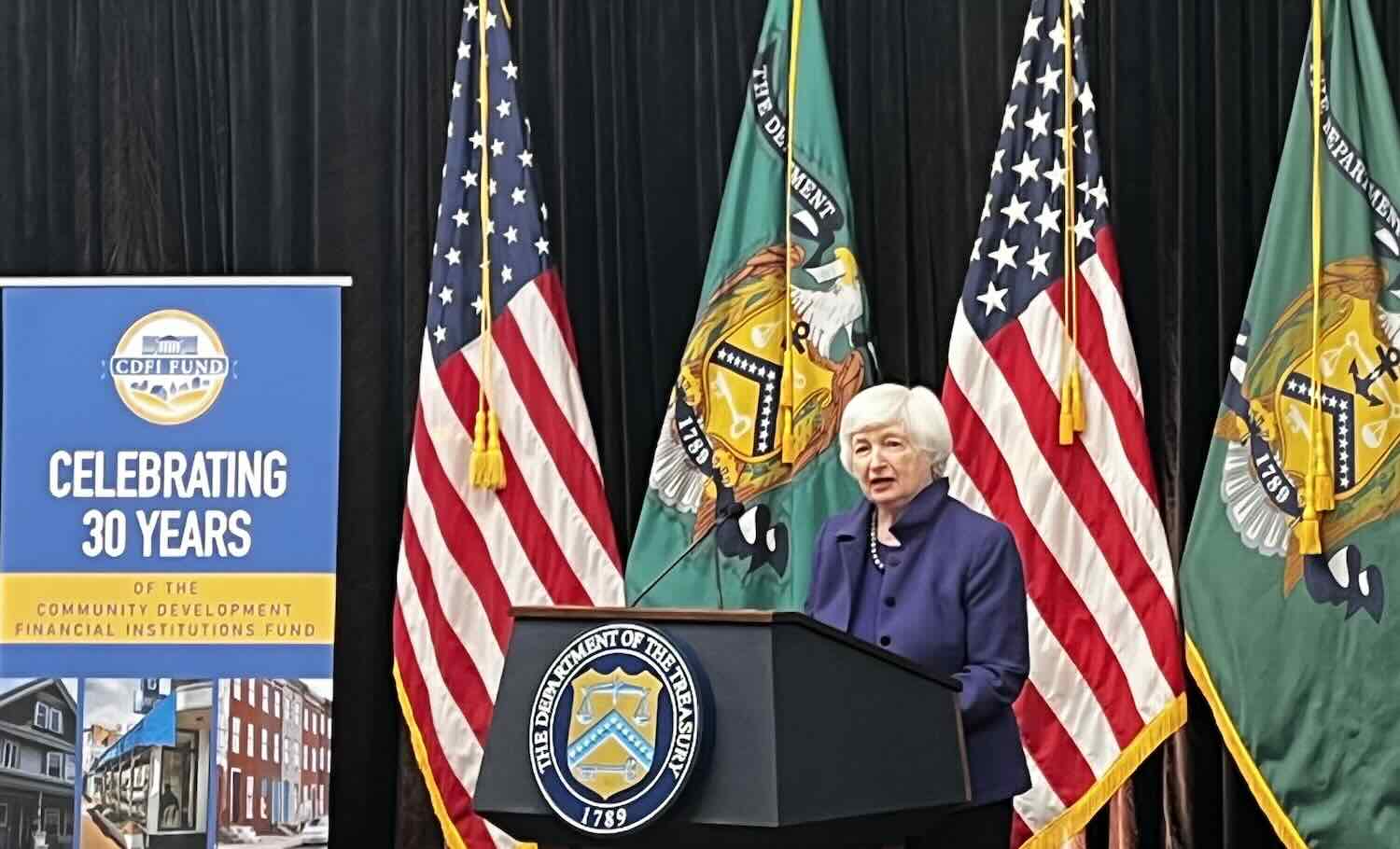It took more than 40 years for Capital Impact Partners to lend its first $3 billion in support of equitable health and wealth-building in overlooked US communities. Now, it’s aiming to lend $1 billion per year.
The Arlington, Va.-based community development financial institution is now the anchor of Momentus Capital, which includes CDC Small Business Finance, a San Diego-based nonprofit Small Business Administration lender, and Momentus Securities, a registered broker-dealer that securitizes small-business loans for sale to pension funds, endowments and other institutional investors (see, “Collateralizing small business loans to bring institutional capital to local impact”).
“We’re trying to create what we believe to be the next generation mission-driven financial services organization that puts purpose ahead of profit,” Ellis Carr, who heads both Capital Impact Partners and CDC Small Business Finance, tells ImpactAlpha in a Q&A. “We want to prove that we can be a connector between communities and the broader capital markets in a way that’s all built around underestimated people.”
The community lender is looking to originate $1 billion per year by 2028 to expand equitable capital access for quality affordable housing, healthy food and health care and other “social determinants of health.” Momentus has a particular focus on financing health care facilities, that in turn can provide training for local healthcare workers.
Its toolkit is impressive. Capital Impact Partners has raised hundreds of millions in low-cost capital from foundations, insurance funds and impact-focused mutual funds as well as retail investors through its rated Capital Impact Notes. Momentus Capital in May raised $171 million for its Equitable Prosperity Fund, its first impact fund, “to provide entrepreneurs with options beyond traditional debt, and to ensure that they maintain control of their companies.”
And its loan-origination capacity is already robust. Since Capital Impact and CDC came together in 2021, Momentus has originated $2 billion in loans with a focus on six regions with large underserved communities: Atlanta, Dallas/Fort Worth, Detroit, Los Angeles, Washington DC and the San Francisco Bay Area.
“Those who are providing the capital make the rules. And sometimes those rules don’t necessarily align with the community’s vision that it has for itself or the projects that it wants to get done,” said Carr (see, “Ellis Carr: Agent of Impact”).
“We believe that creating a mission-oriented organization that could serve as an intermediary to the broader capital markets will be able to channel more capital into communities in concert with the community’s needs.”
ImpactAlpha: How did coming together with CDC Small Business Finance add to your community finance toolkit?
Carr: Since coming together with CDC, we’ve originated almost $2 billion we’ve packaged to communities across the country. After we came together, there was a strong need to build out capabilities that were focused on non-debt offerings and for a small business type product. CDC has been historically and still is one of the largest SBA lenders in the country for the SBA community Advantage and the SBA’s 504 loan programs. Being able to bring that knowledge and expertise, coupled with the trust and the relationships that Capital Impact Partners had garnered through some of their place-based efforts, was how this came together.
The last two legs of the stool that we created were our impact investments area, which is now a registered investment advisor that provides non-dilutive capital, equity capital to growing businesses. Recognizing that we’re working in underestimated, underserved communities and with underrepresented entrepreneurs, access to equity capital has been elusive or non-existent in some cases. So we wanted to make sure that we could provide both debt and equity products to allow organizations or companies and communities to thrive.
We also realized that those who are providing the capital make the rules. And sometimes those rules don’t necessarily align with the community’s vision that it has for itself or the projects that it wants to get done. We believe that creating a mission-oriented organization that could serve as an intermediary between organizations like Momentus and the broader capital markets, will be able to channel more capital into communities in concert with the community’s needs.
We created Momentus Securities, a for-profit mission-driven investment bank to create products that are demonstrative of the types of projects that communities want. And structuring them in a way that makes it easy for institutional investors who are looking for double-bottom-line investments, to be able to make those and to make those at scale.
We both created capacity and capability for ourselves on the origination side, but also have created and invested in entities to broadly serve the market writ large, not just for us. We’ve been able to originate over $2 billion since 2021 when we came together.
ImpactAlpha: You’ve gotten $3 billion into your target communities. What now?
Carr: Our goal over time, and I’d say by 2028, is to be able to originate about a billion dollars in annual originations across our platform. We need to build a broad array of products and services that can be shaped into the right types of investments for what the communities need to achieve. We’ve created products on the small business side. Other products are building towards SBA products that require lower down payments to allow more entrepreneurs to have access to the capital that they deserve.
All of our work is supportive of building wealth in communities, but also the social determinants of health, which is around access to quality housing, access to healthy food, education, healthcare and the like (see Ibrahim Rashid’s “How hospitals are partnering with CDFIs to invest in the social determinants of health”).
ImpactAlpha: Is there demand for $1 billion in loan origination?
Carr: I think that the need will outstrip what we can provide, which is why we need partners to be able to make it happen. We operate in six core markets across the country, in Washington, DC, Detroit, Atlanta, Dallas, the Bay Area and LA, in particular.
How are we going to get to the scale? Our strategy that we’re finalizing over the next six months is what I would call a people and places strategy. The place is relatively straightforward: Building strategies that are directly responsive to what we’re hearing in the communities. We’re building out specific strategies right now for Atlanta and LA, and again, those strategies aren’t us determining the type of “market opportunities.” It’s around really going out and understanding what the needs are in the communities, where work is happening, and where we can add value. We will continue to build out our place-based strategies across those six core markets over the next 12 to 24 months.
And we’ll also be adopting what I would call a people-focused strategy, focusing nationally on specific target audiences that help support both the social determinants of health and also wealth creation.
We have identified medical professionals as one of those areas, both because they provide healthcare provision to vulnerable populations, but in large cases they offer quality jobs for folks within their communities. We’re building strategies around supporting specific medical professionals across the country in service to that broader objective.
ImpactAlpha: What kind of partners are you looking for?
Carr: We have three types of capital that we focus on, including financial capital, which is like debt and equity type of products. We have knowledge capital, which is our technical assistance and business advising services and programmatic work that helps get people capital ready. We leverage both our knowledge capital and our financial capital to think about the middle piece of capital, which is social capital – connecting folks who are in need of capital to the network of people who are invested in helping them to succeed. When I think about partnerships, I think about them across those dimensions.
And when we talk about how we better get introduced to customers? How do we better understand the needs of the customers, our potential customers, and the folks within the community? It’s really about building relationships and partnerships with community development financial institutions and community development corporations.
It’s also about building partnerships that can help you to focus on a specific audience to allow them to get capital at scale. And then lastly, it’s about partners who can help accelerate your operations more efficiently and effectively, recognizing that we cannot be a jack of all trades.
In the middle category, social capital, a great example is a partnership like the one we have with Macy’s. We’re working with Macy’s, the retailer, to increase access to capital for folks who are directly in their supply chain, and over time, want to do business with Macy’s. We’re partnering with them and our different suppliers to both provide technical assistance and training, and also access to the capital that we have and our own products that we have. We’ve also partnered with Macy’s to think about the products and offerings that we bring to bear, both debt and equity, and to be able to support the needs of their suppliers and their supply chain.
We are partnering with a group called the Lenders Cooperative. They are a technology company and a lender service or provider. We’ve partnered with them to increase access to capital for restaurants in the Toast network. And so there are 95,000 restaurants across the country that leverage the Toast network. We partner with them to provide financing options for restaurants within the network and it is a technologically enabled way for small business owners to access capital seamlessly.
Lenders Cooperative is providing both people power as well as technology to help us grow and scale, in addition to our existing team. So those are three specific examples around how we’re partnering across multiple dimensions to grow and scale our business.
ImpactAlpha: Is Momentus Capital concerned about the legal backlash to diversity, equity and inclusion?
There are a couple principles that I think we live by. One is we think that all folks deserve access to capital and opportunity period. We also understand that there are certain groups across the country that have historically not had access, and we are focusing on both a people and places strategy that allows us to support both of those objectives.
So when you think about Detroit and Atlanta. We chose those places because of the opportunity, the growth in the economy, the growth in population, but also the socio-economic statistics that are generated out of those places. We’ve been intentional about where we want to operate and what target audiences that we’re focusing on, again, given the high alignment of the social determinants of health and wealth creation. Our strategy allows us to continue to work and grow and expand in spite of the things that are happening right now.
Part of it is to help folks understand that there is a different way to do the work, to provide financial services in an equitable way, and that you can do it in a profitable manner and ensure that the community is left better off as a result of it.
All this work is helping to support a narrative around real and perceived risk. As we know, capital has not flowed into communities and/or to certain groups because there is a perception around risk, and that risk has not necessarily been proven. Yet pricing is higher because of the perceived risk.
Our whole goal is to begin to realign and appropriately size the real risk of investing in communities across the country that have not historically had it.












